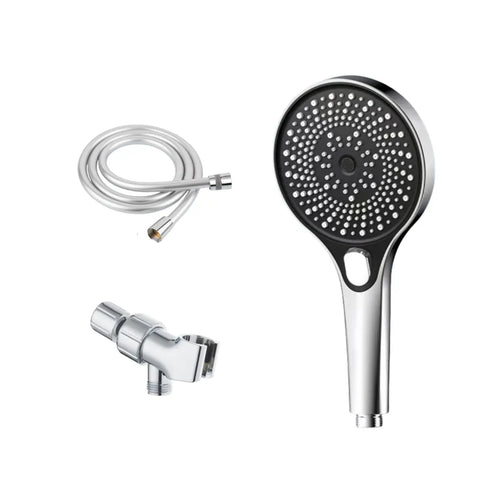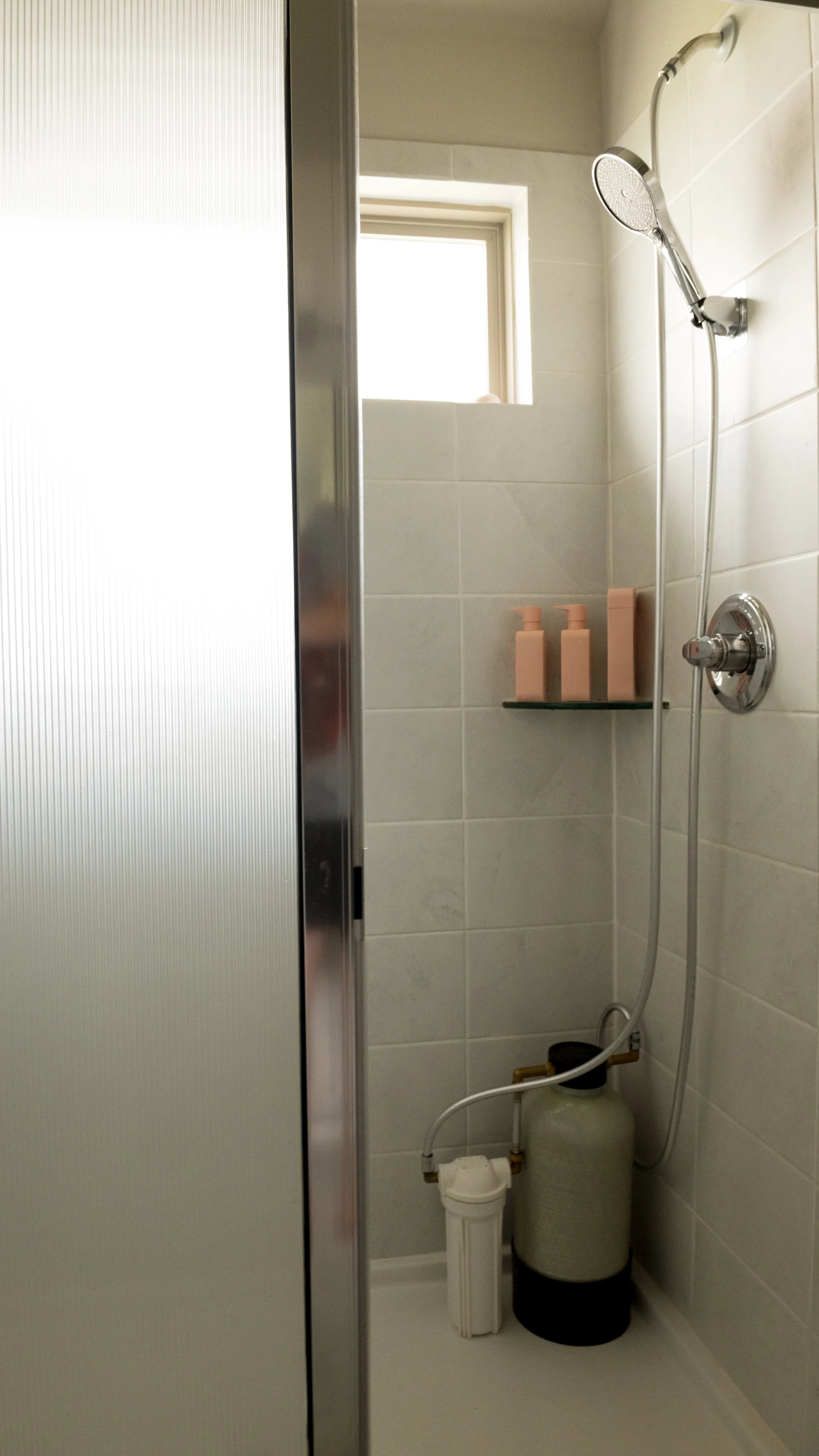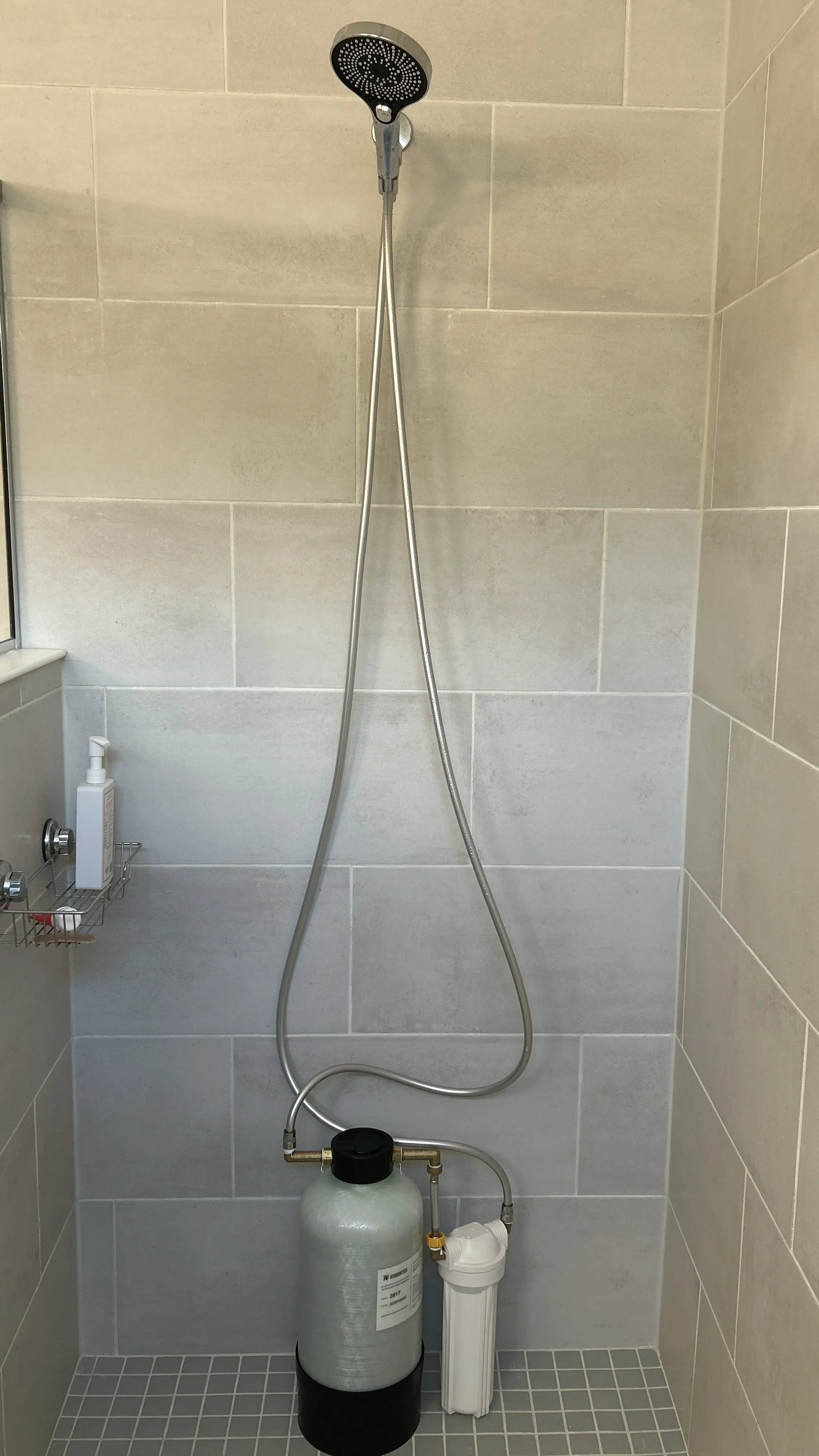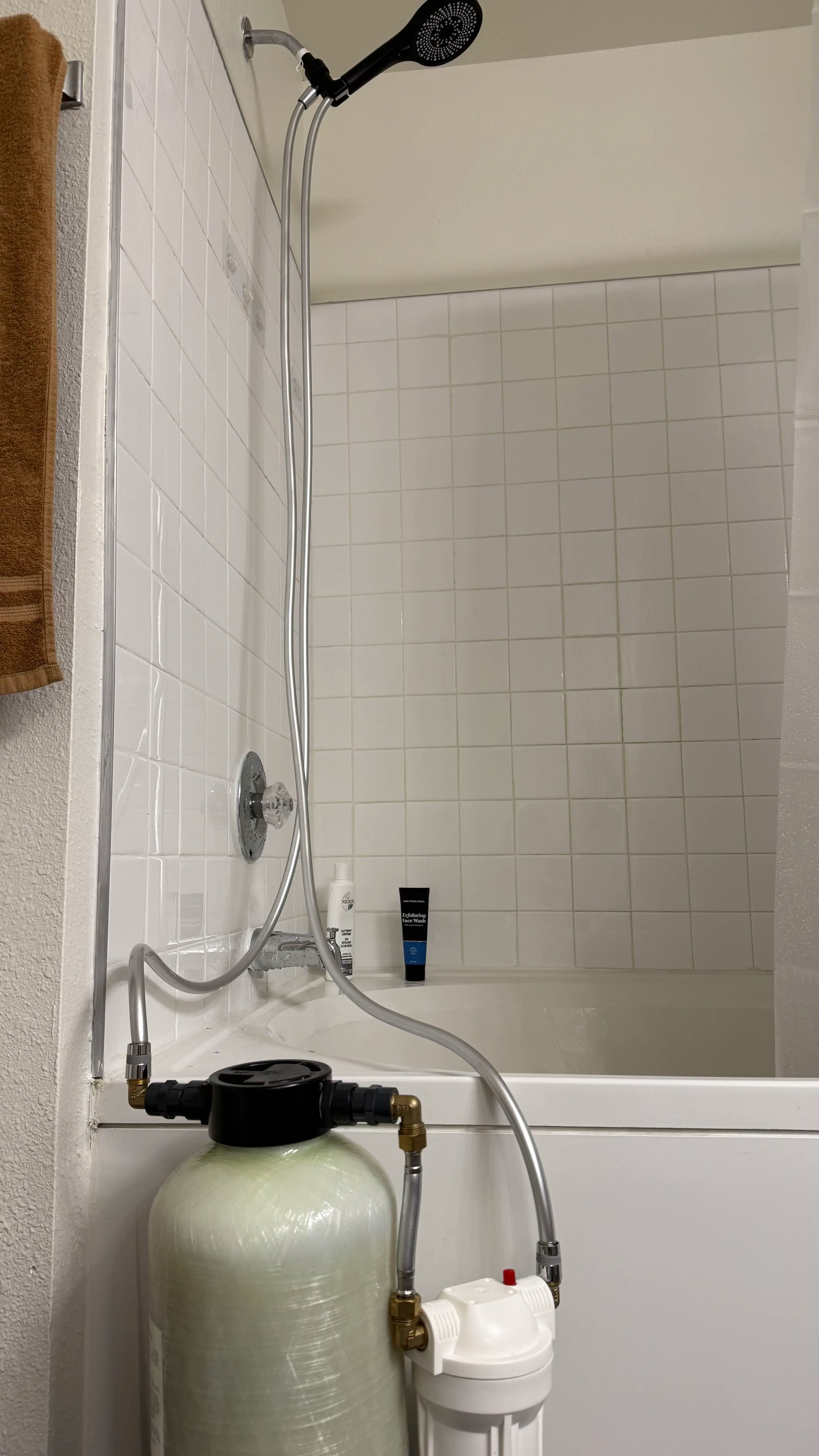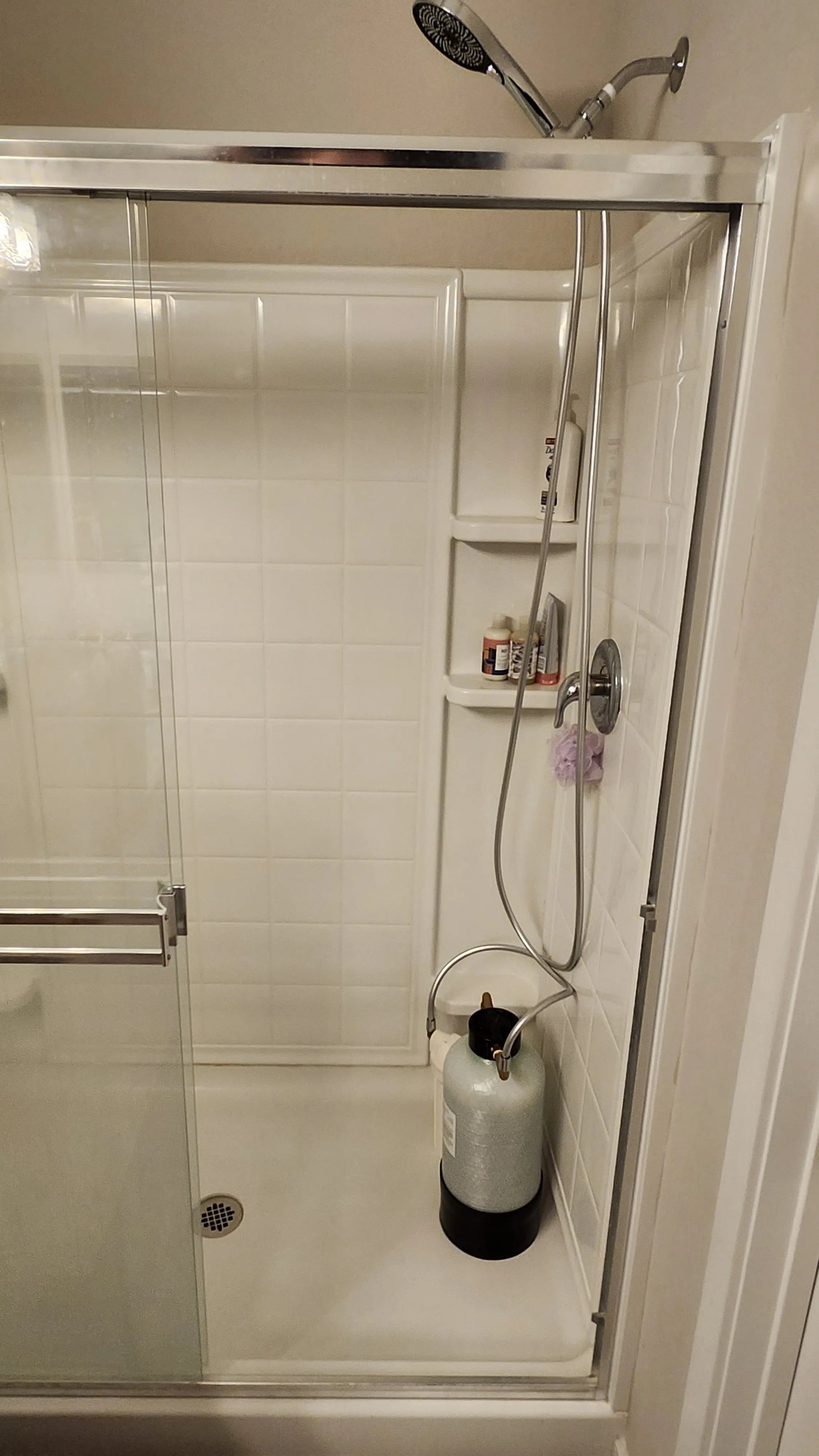

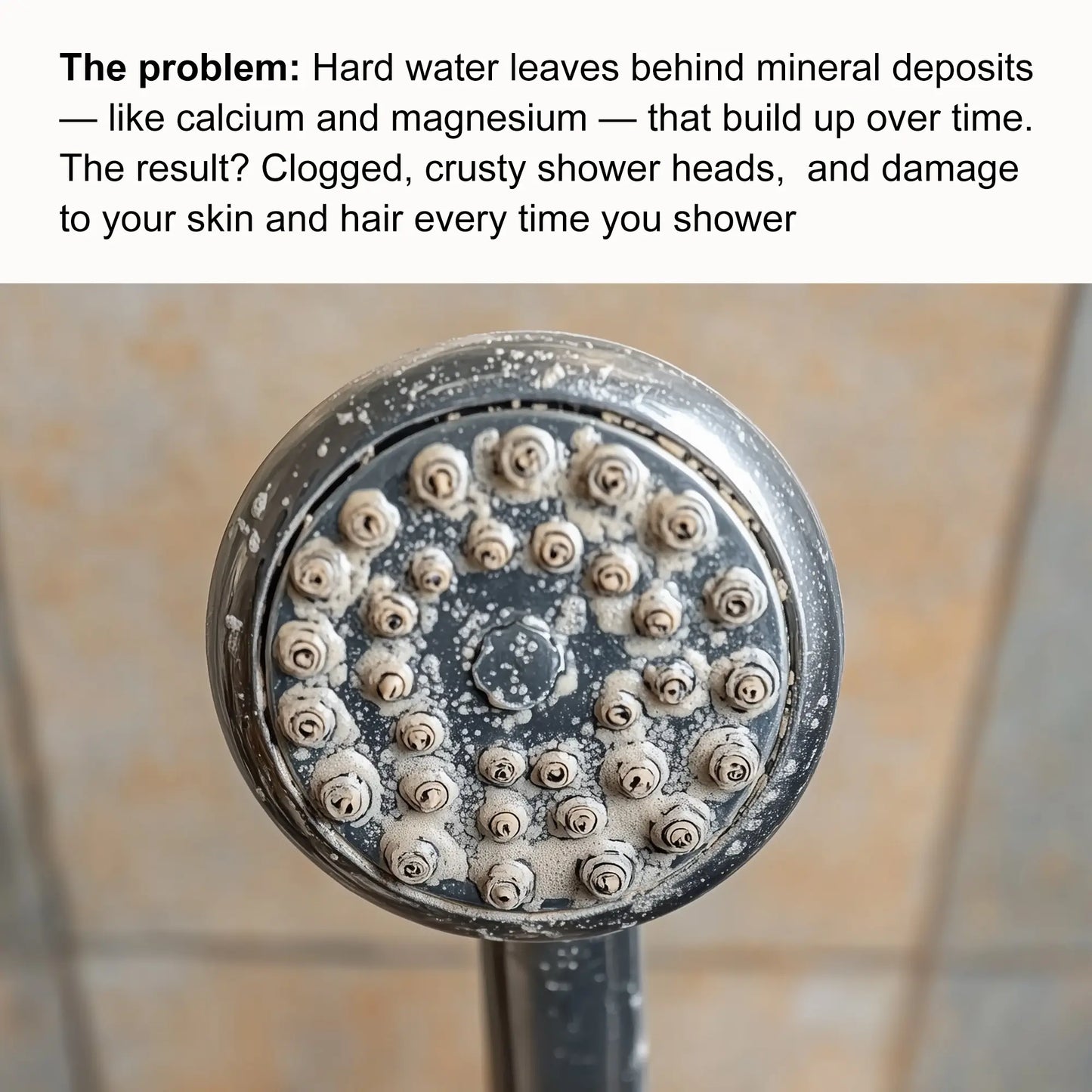


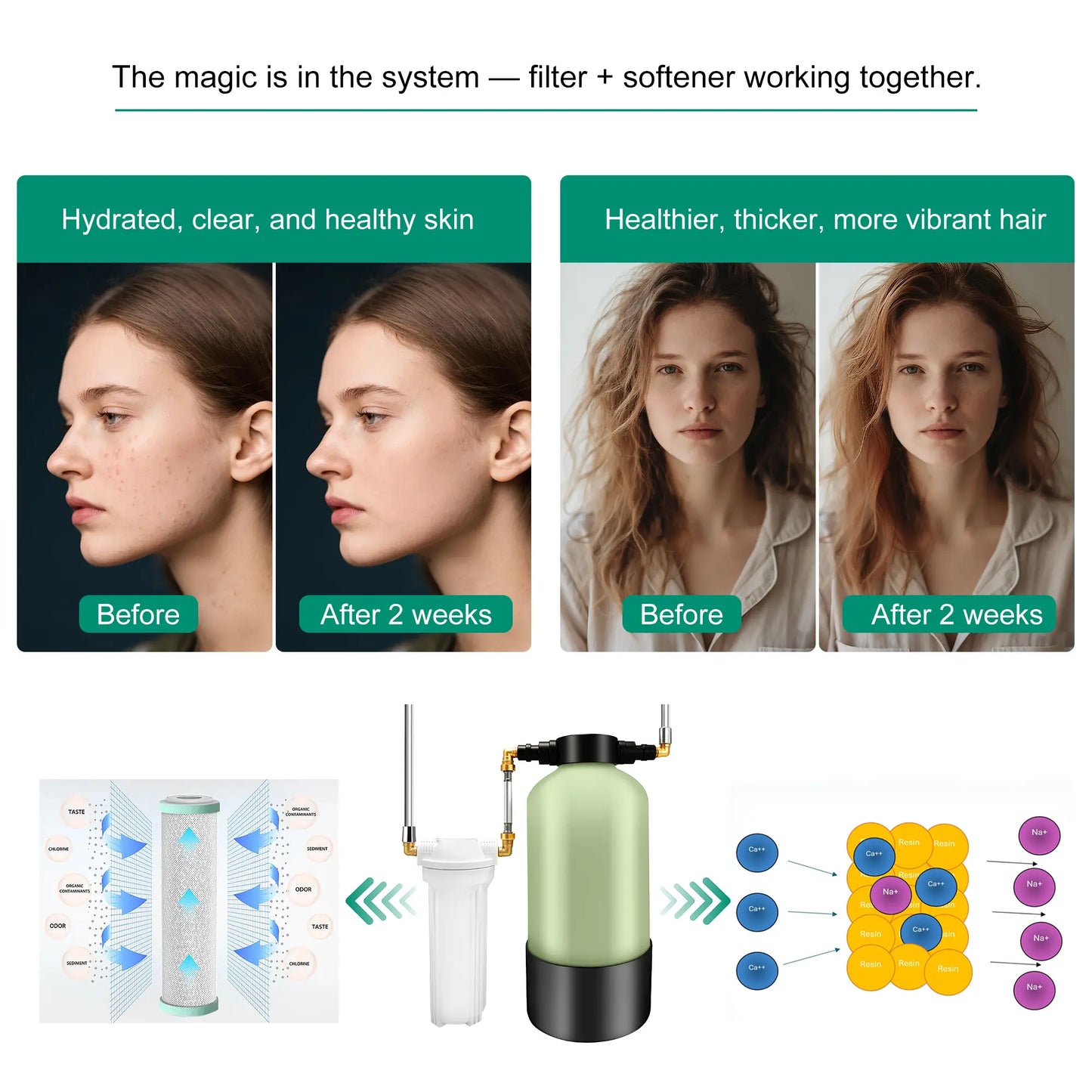


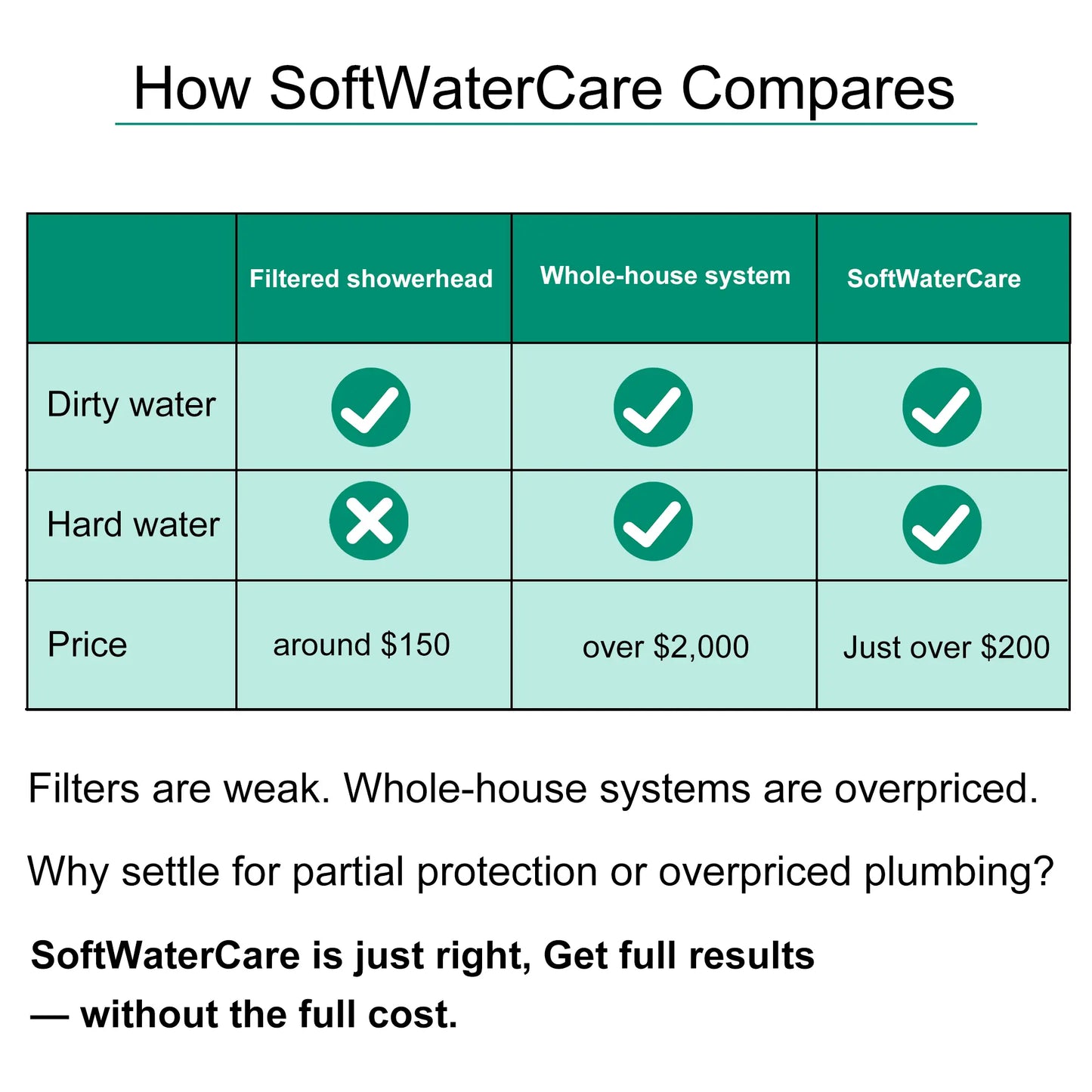




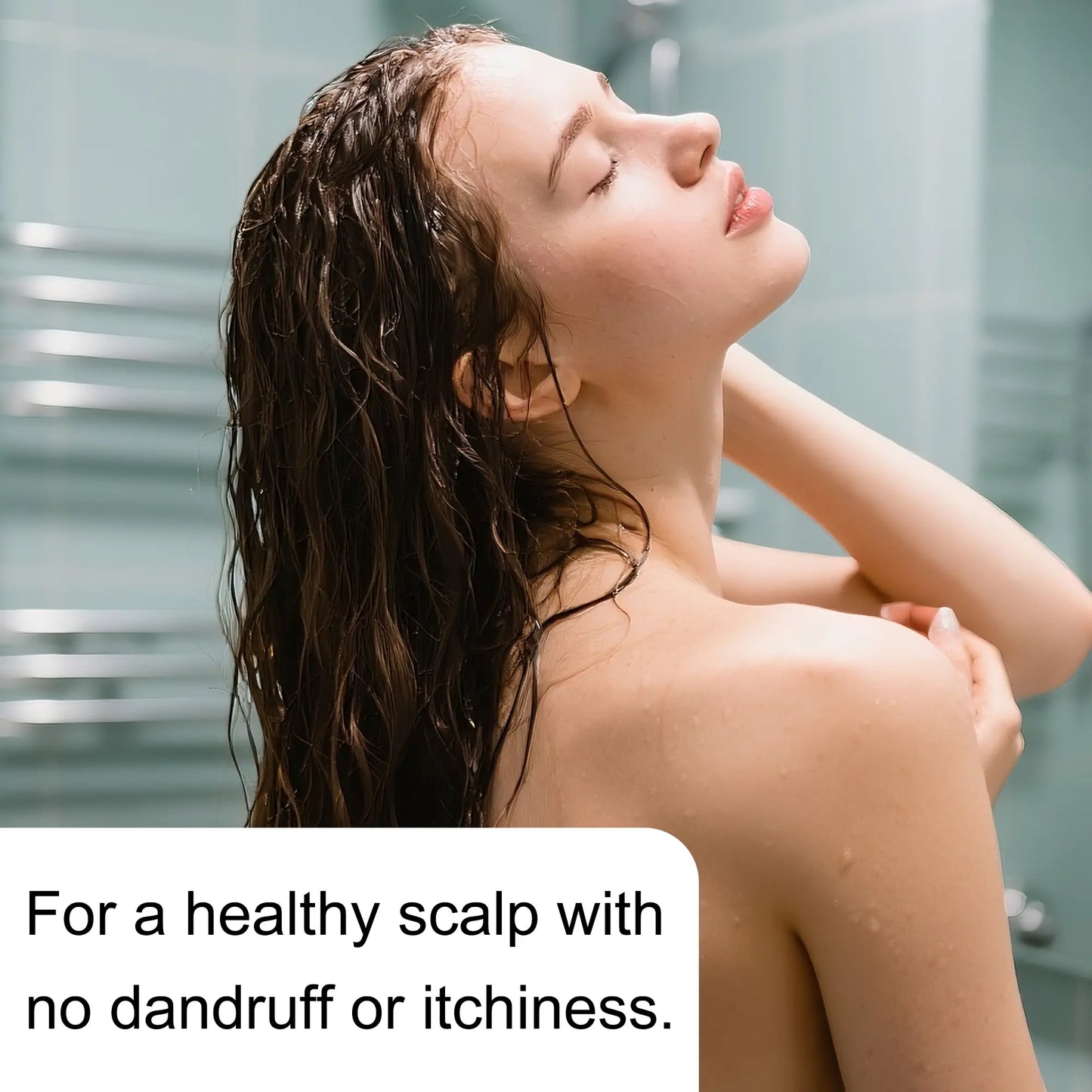
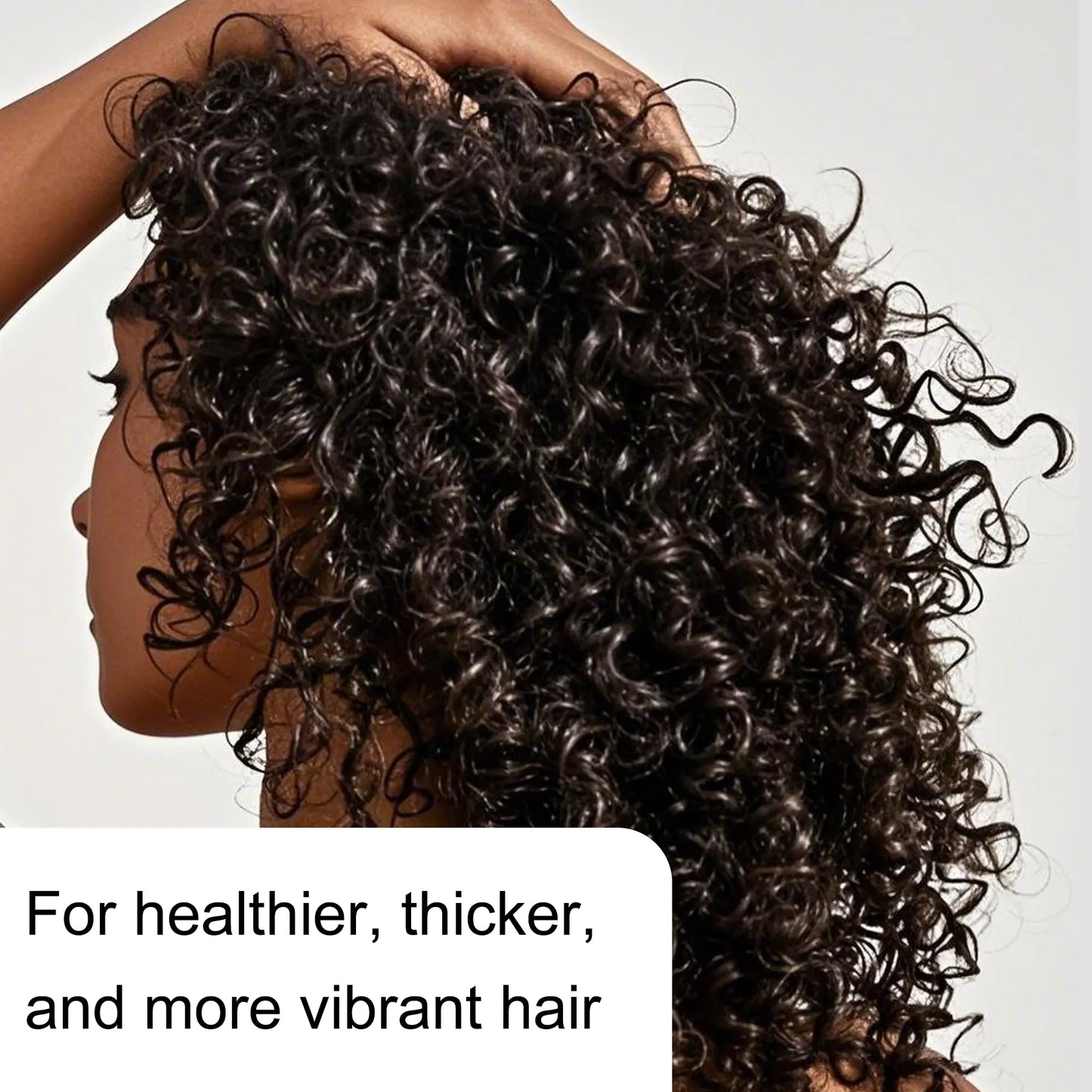

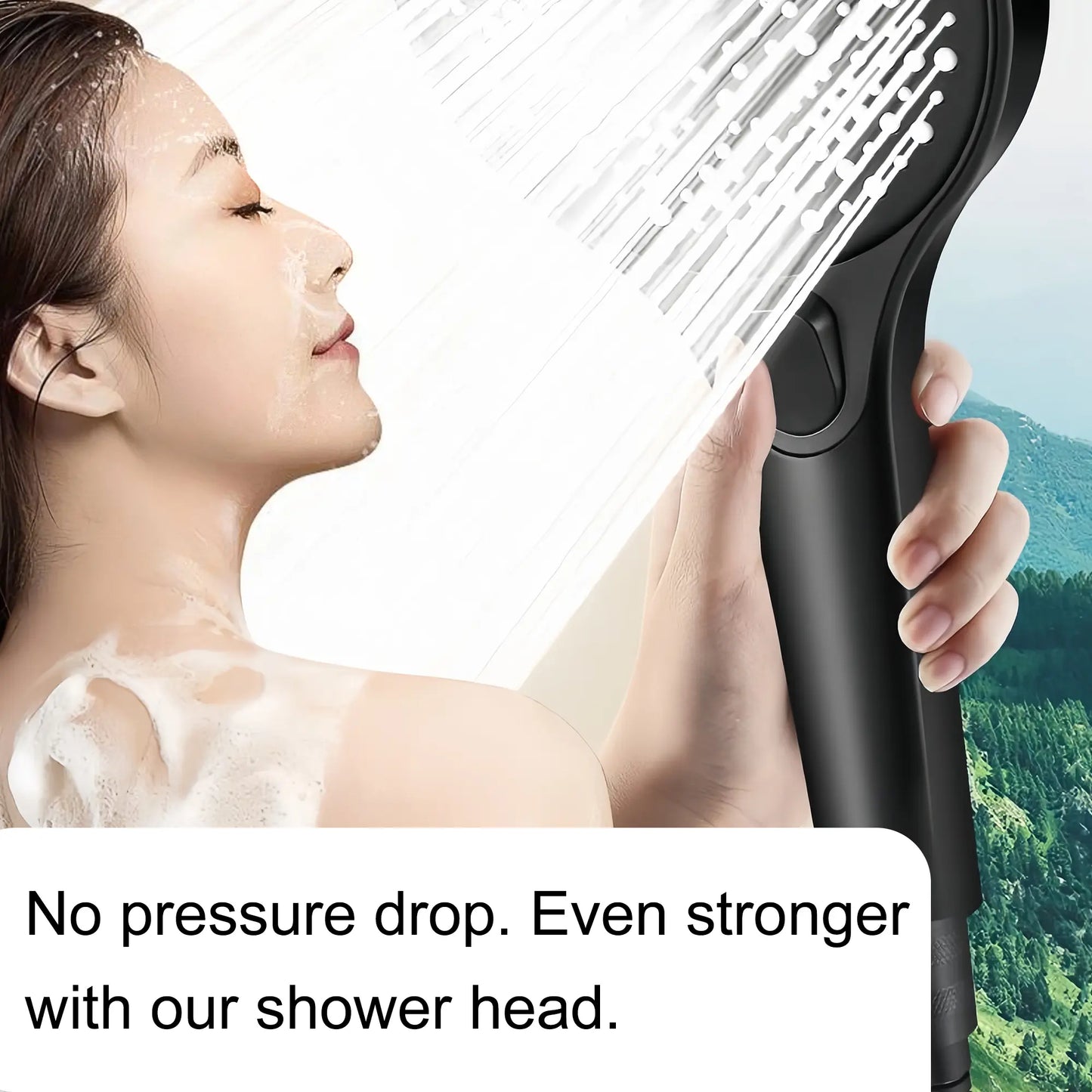
What Dirty, Hard Water Does to You
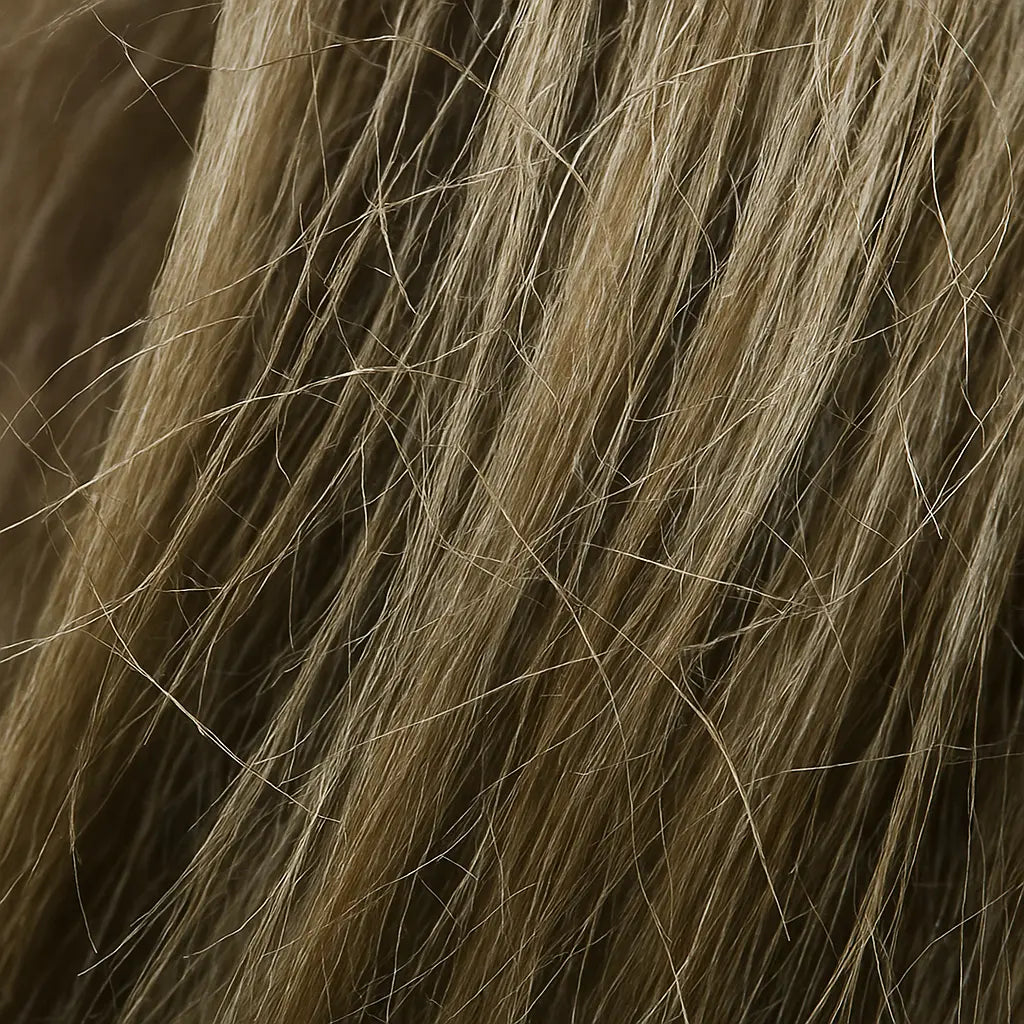
Chlorine damages your hair’s structure and strips away its natural protective oils, leaving it dry, brittle, and frizzy.
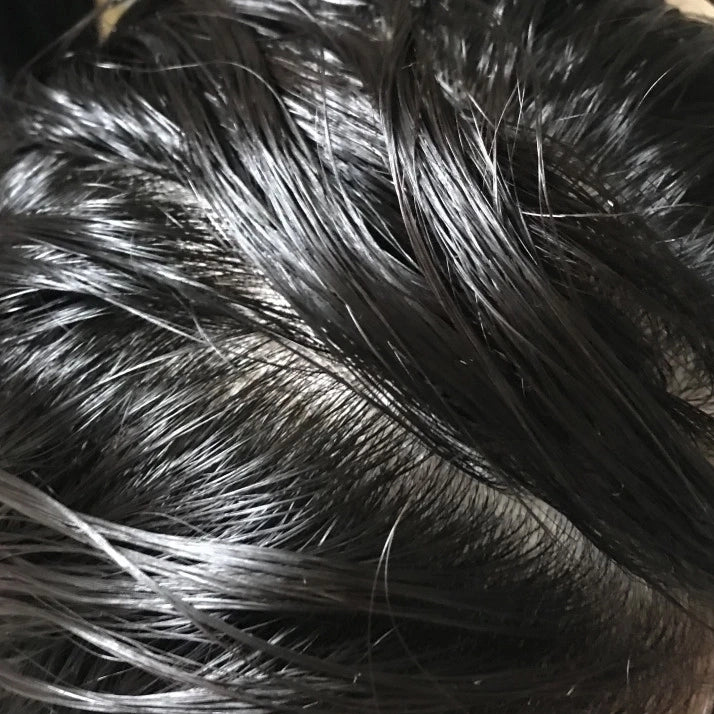
Hard water makes your roots oily and your ends dry—minerals block pores and strip moisture from your hair.
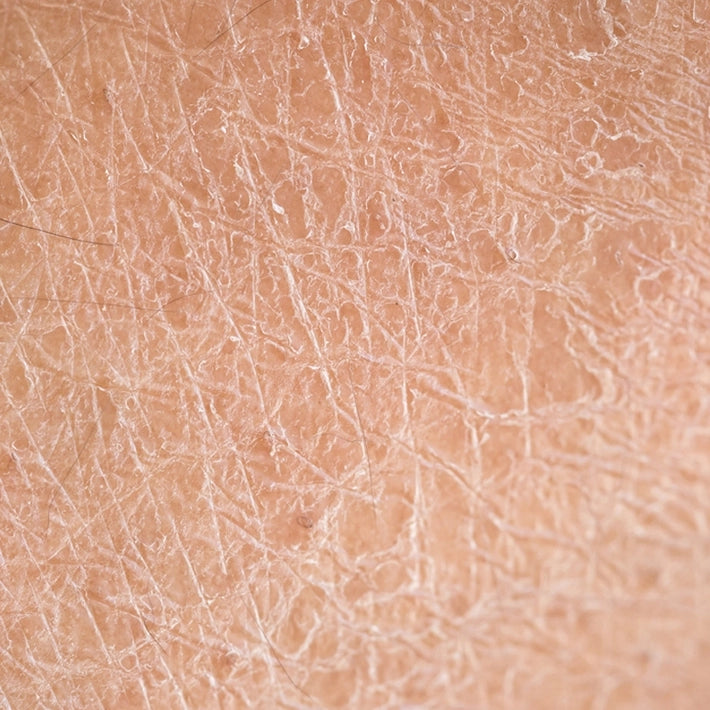
Hard water clogs pores and disrupts your skin’s natural barrier, leaving it dry, itchy, and more prone to breakouts and irritation.
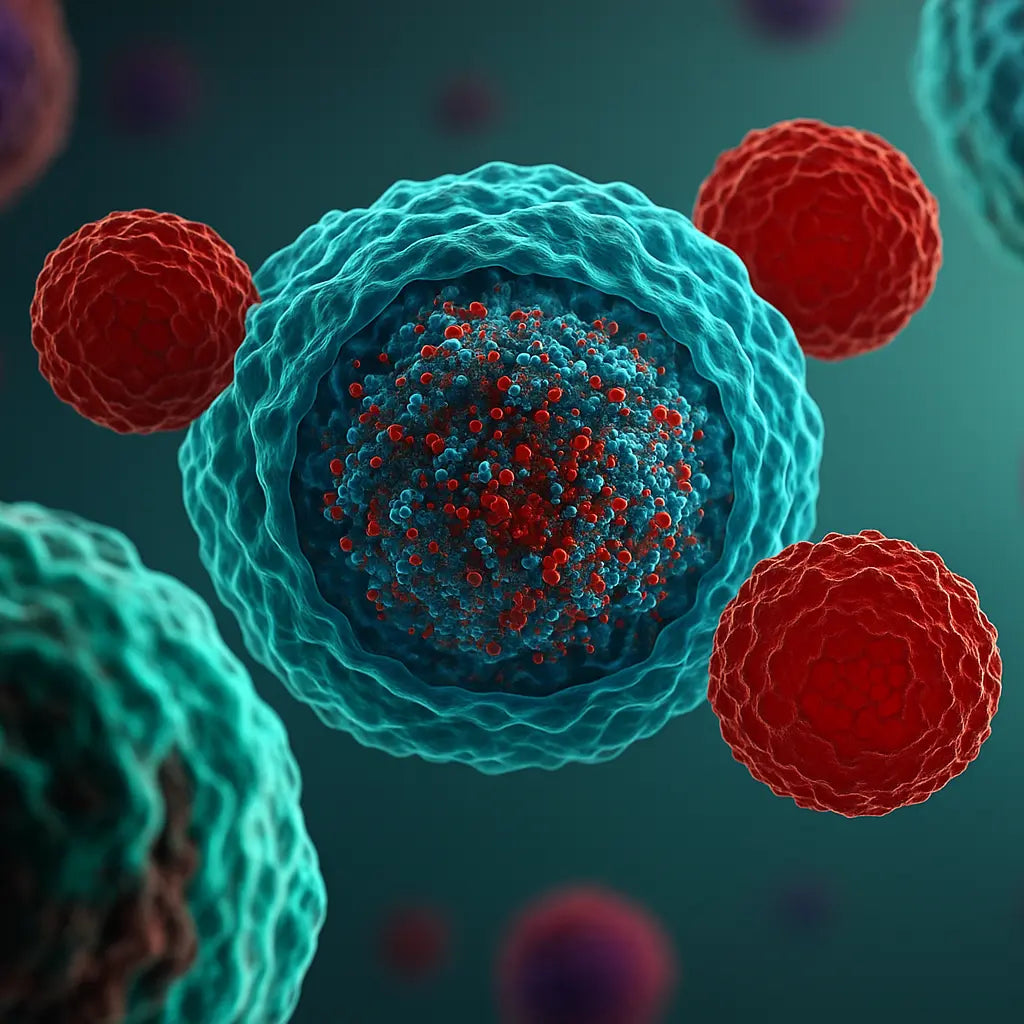
THMs and VOCs from chlorinated water can absorb through your skin or lungs—linked to cancer, irritation, and health risks.
How Does SoftWaterCare Work
1. Antibacterial ACF Filter for Dirty Water
Silver-infused Activated Carbon Fiber traps chemicals on its huge surface area while silver ions stop bacteria from growing inside the media—delivering consistently cleaner water every shower.

Targets & Removes
- Free chlorine and chloramine
- Trihalomethanes (THMs)
- Volatile organic compounds (VOCs)
- Pesticides & herbicides
- Pharmaceutical and hormone residues
- Heavy metals (lead, mercury, cadmium, chromium)
- Odors & tastes
- Inhibits growth of bacteria, algae, and mold
2. Water Softener for Hard Water
Ion-exchange resin in the softener swaps calcium and magnesium for sodium, stripping them from water before they can cause buildup, scale, or soap scum.
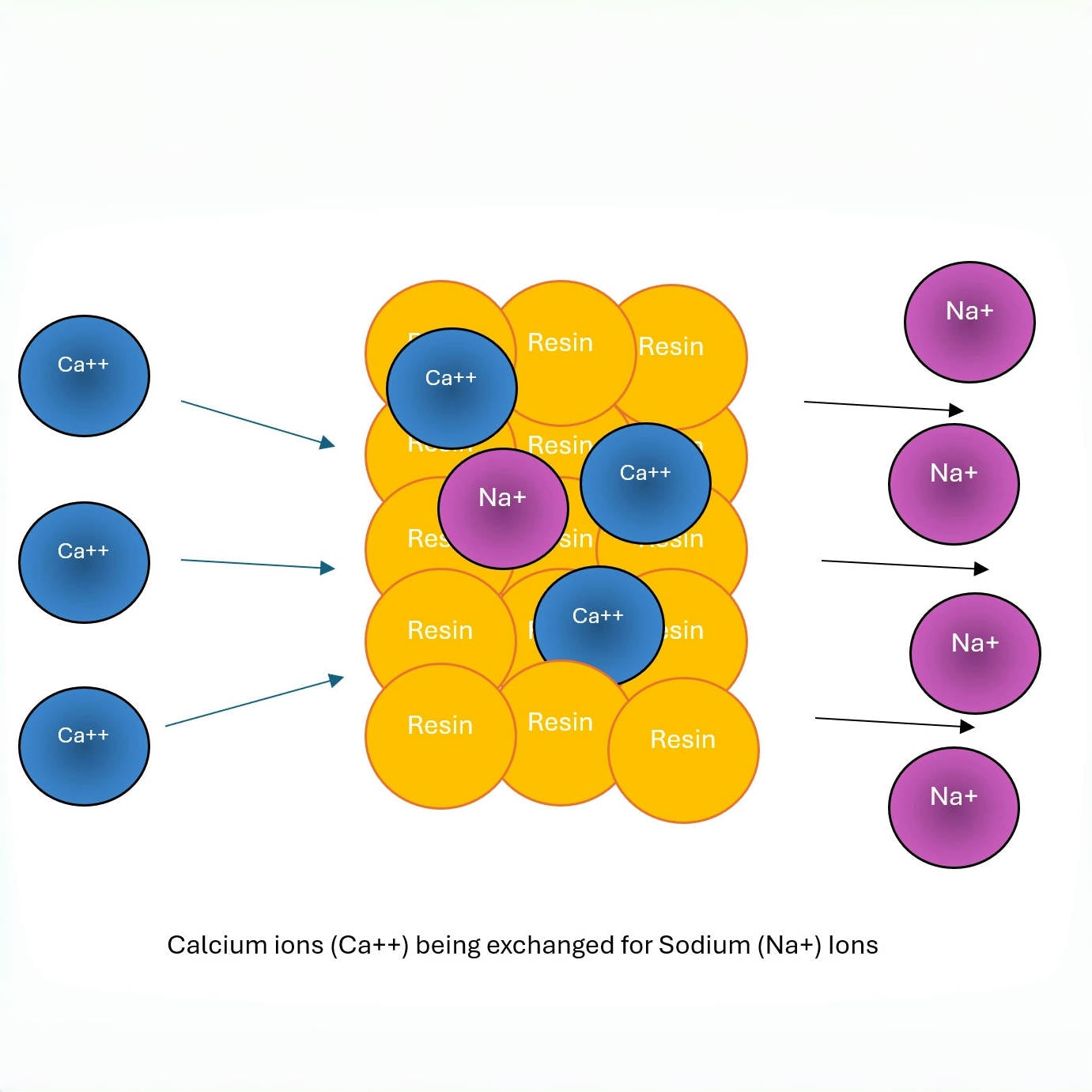
Removes / Prevents
- Calcium ions (Ca²⁺)
- Magnesium ions (Mg²⁺)
- Trace iron and manganese that cause orange or black stains
- Scale buildup on skin, hair, pipes, and fixtures
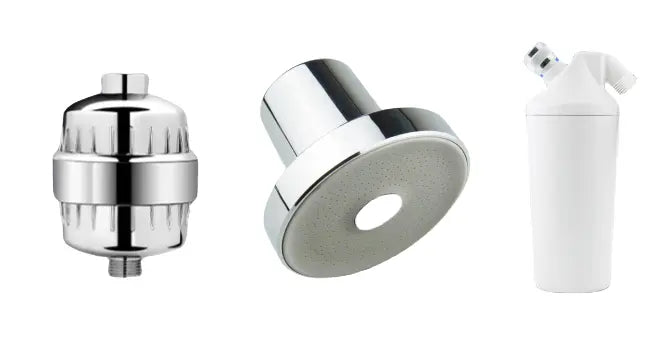
The Limitations of Shower Filters
Don’t Be Fooled by Misleading Claims
Shower filters can remove chlorine and some contaminants, but they leave hard water minerals behind. It’s like locking the front door but leaving the windows wide open — you’re still not safe.
That’s why a full solution like SoftWaterCare, which purifies and softens, is essential for truly healthy skin and hair.
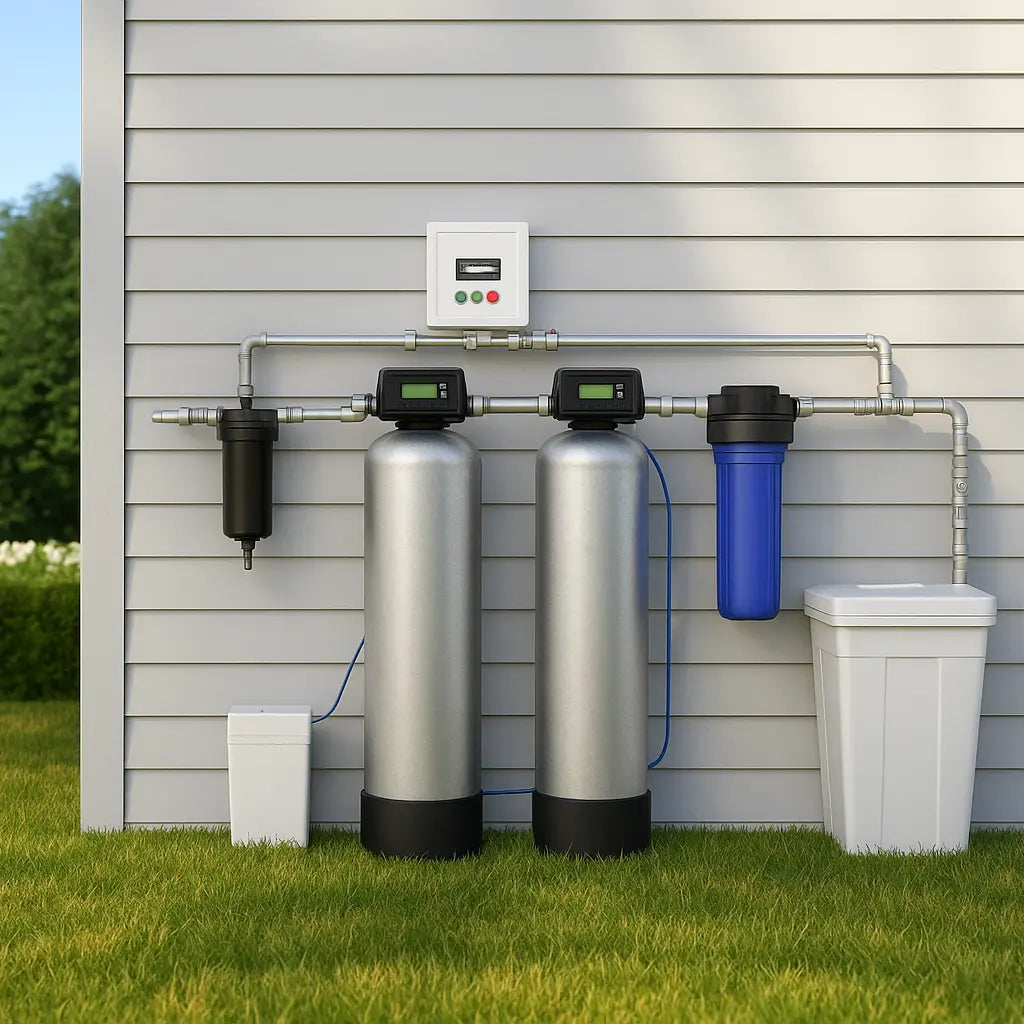
Whole-House Water System
A whole-house water system combines a filter with an ion-exchange softener, treating every drop before it reaches any tap or appliance.
Benefits
- Whole-home coverage — every tap gets clean, soft water.
- Better experience — no chlorine taste, no scale, softer skin & hair.
- Protects plumbing & appliances — fewer repairs, longer life.
Drawbacks
- High upfront cost — roughly $2 k–$6 k installed.
- Plumber required — cuts into main line, needs permits.
- Apartment-unfriendly — landlords ban permanent units

How SoftWaterCare Compares
🔸 Filtered showerheads are weak.
They only remove chlorine and leave hard water minerals behind.
🔸 Whole-house systems are overpriced.
They cost thousands and require complex plumbing.
🔹 SoftWaterCare is just right.
Get full results — clean, soft water at a fraction of the cost.

The Benefits of Clean, Soft Water
In just 1 month! Results from a Consumer Perception Study.
93%
Felt Their Skin Get Softer
96%
Loved Their Silkier Hair
91%
Saw Less Hair Fall
94%
Noticed Improvements in Greasy Roots and Dry Ends

The U.S. is one of the countries most affected by hard water.
- Distribution: Around 85% of households use hard water.
- Hotspots: The Midwest (e.g., Indiana, Iowa), Southwest (e.g., Arizona, Nevada), and Texas have some of the hardest water, often exceeding 180 ppm.
- Cause: Groundwater passes through mineral-rich layers like limestone, picking up high levels of calcium and magnesium.
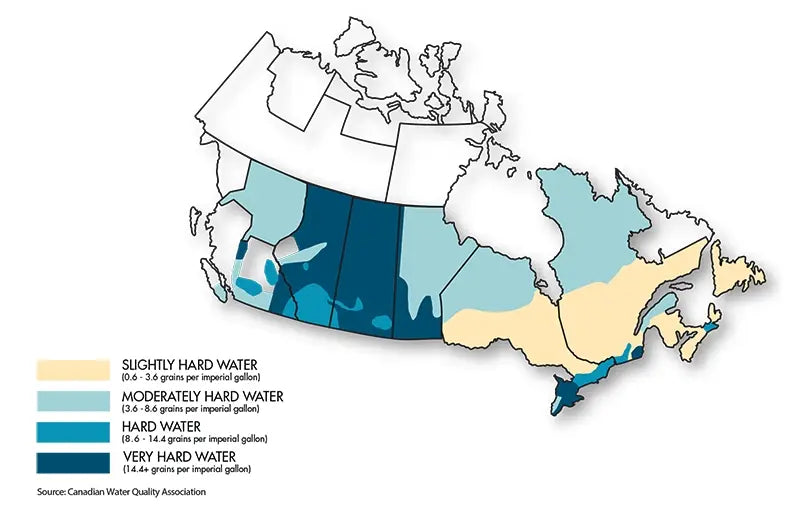
Canada’s water hardness varies widely by region.
- Distribution: The Prairie Provinces (like Alberta and Saskatchewan) commonly have hard or very hard water.
- Hardness levels: Some areas reach 300–400 ppm, while places like British Columbia and eastern provinces tend to have softer water.
- Cause:Regions using groundwater often have higher mineral content, while surface water sources like lakes typically result in softer water.
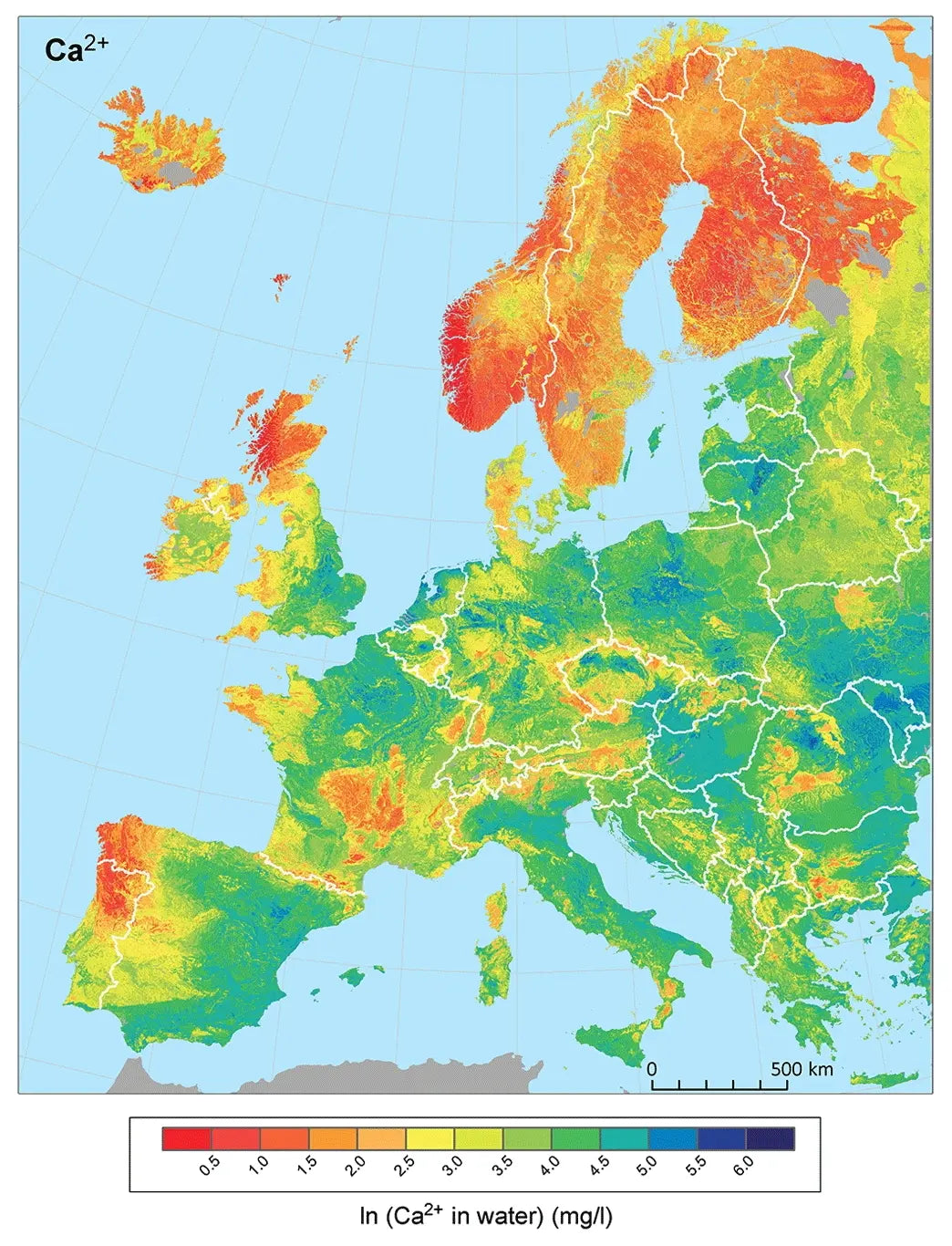
Water hardness across Europe varies significantly based on geography and water sources.
- United Kingdom: Southeastern England has very hard water, while Scotland and northwestern regions generally have soft water.
- Western Europe (e.g., Germany, northern France, Belgium): Often has hard to very hard water, sometimes over 300 ppm.
- Southern Europe (e.g., Italy, Greece, southern Spain): Water tends to be hard due to reliance on groundwater.
- Northern Europe (e.g., Sweden, Finland, Norway): Mostly soft water from lakes, rivers, and glacial sources.
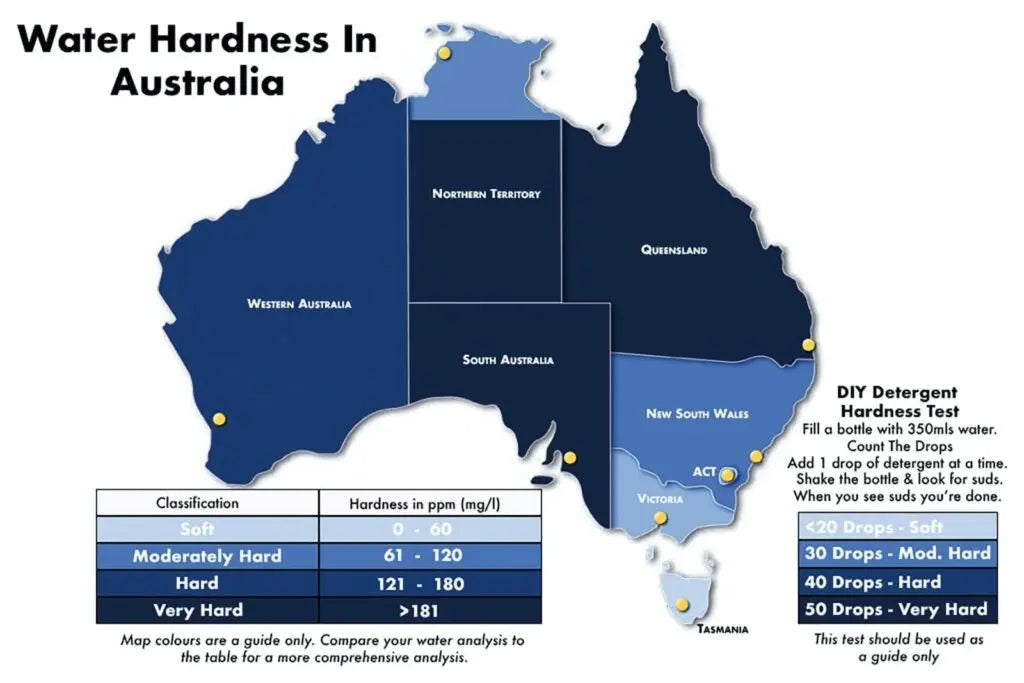
Australia mostly has soft to moderately hard water, but some areas experience high hardness.
- Harder areas: Adelaide, parts of Brisbane, and northern Perth suburbs often exceed 130–200 mg/L.
- Softer areas: Cities like Melbourne and Hobart enjoy very soft water, usually below 50 mg/L.
- Cause:: Water hardness depends on the source—groundwater tends to carry more calcium and magnesium than surface water.
See the Difference in Water Hardness
Our test results speak for themselves:
🔸 Untreated Water
- Contains both chlorine and hard minerals (calcium, magnesium)
- Causes skin irritation, dryness, and hair damage
🔸 Filtered by Shower Filter
- Removes chlorine and some contaminants
- Hard minerals remain, water is still hard
🔹 SoftWaterCare Processed Water
- Removes both harmful chemicals and hard minerals
- Clean, soft water that’s gentle on skin and hair
With included water hardness test strips, you can see the difference yourself.
Clean, soft water isn’t just a luxury — it’s a necessity.
Quick & Easy Installation
The SoftWaterCare shower water softener system arrives pre-assembled and is easy to install on your own — no plumber required!
🔹 Just connect in order:
shower outlet → shower hose → system → second shower hose → shower head
🔹 Important note:
If you’re using a fixed shower head, simply switch to a handheld for easy installation. We provide a matching handheld kit to ensure seamless setup.
🔹 Water pressure friendly:
No drop in pressure — in fact, pair it with our high-pressure shower head for an even stronger flow!
Water Softener Recharge Instructions
Over time, the resin in the softener becomes saturated with hard minerals and loses its softening ability. This is when the system needs to be recharged.
🔹 How to tell if it’s time to recharge:
- The slippery, soft feel of water during showers starts fading.
- Use the included hardness test strip to confirm.
- For single-person use, recharge about once a month.
🔹 Recharge Steps:
- Action: Circulate saltwater between the container and softener using the pump.
- Principle: Saltwater contacts the resin to remove hard minerals and restore softening power.
- Result: Boosts recharge efficiency and keeps your system working at its best.
FAQ
Do water softener shower heads work for hard water?
Do water softener shower heads work for hard water?
Water softener shower heads use filters to capture hard water minerals like calcium and magnesium. While they provide a solution, their effectiveness is limited. The compact size of shower heads doesn’t allow enough space for sufficient filtering agents, meaning the softening effect may not even last through a single shower.
Do shower filters work for hard water?
Do shower filters work for hard water?
Shower filters can effectively remove chlorine, offering basic water purification. However, they cannot soften hard water. Many brands blur the line between purification and softening, misleading consumers. True soft water requires removing minerals like calcium and magnesium—something shower filters simply can’t do.
What is the difference between purification and softening of water?
What is the difference between purification and softening of water?
Water purification and softening address two different concerns. Purification removes harmful substances like sediments, chemicals, disinfectants, and chlorine byproducts to make water safer for use. Softening, on the other hand, specifically removes minerals like calcium and magnesium, which cause water hardness.
While purification focuses on eliminating contaminants, softening is about reducing mineral content to protect your hair, skin, and home from the effects of hard water. Both processes play vital roles in improving water quality.
Which is better, a water softener or a water filter?
Which is better, a water softener or a water filter?
For drinking water, a filter is often enough. It removes harmful substances while retaining trace minerals beneficial to your body, making a water softener unnecessary.
For shower water, protecting your hair and skin requires both purification and softening. A filter removes contaminants, while a softener eliminates hard water minerals like calcium and magnesium. Together, they ensure the best water quality for your shower.
How to soften hard water for shower?
How to soften hard water for shower?
For a long-term solution, install a whole-house water softener to tackle hard water throughout your home.
If you’re on a budget or renting, a compact point-of-use shower softener offers an affordable and convenient way to enjoy soft water in your shower.
What’s the difference between SoftWaterCare and ShowerStick?
What’s the difference between SoftWaterCare and ShowerStick?
The ShowerStick is a portable, stylish, and compact shower water softener. However, its smaller size means it holds less resin, requiring a manual recharge every three showers. While it’s sleek in design, this frequent maintenance can be inconvenient.
SoftWaterCare, on the other hand, is larger and more efficient. It softens water for up to one to two months before needing a recharge. It also includes a pre-filter to purify water and protect the softener, offering added functionality. Plus, it’s more affordable than the ShowerStick, making it a cost-effective option.
If appearance and style are your priorities, the ShowerStick is a great choice. But if you value performance, convenience, and affordability, SoftWaterCare is the better option.
What are the advantages of the SoftWaterCare shower softening system?
What are the advantages of the SoftWaterCare shower softening system?
Compared to Shower Filters: SoftWaterCare uniquely softens water while delivering more thorough purification.
Compared to ShowerStick: It lasts longer between recharges and features advanced purification capabilities.
Compared to Whole-House Softeners: SoftWaterCare is far more affordable and includes added water purification for extra value.
Do I need to replace the filter or softener?
Do I need to replace the filter or softener?
Yes, regular maintenance ensures optimal performance:
ACF Filter:
- For single-person use, replace every 9 months.
- For two people, replace every 6 months.
- For three or more, replace every 3 months.
Water Softener:
- The softener lasts over 5 years.
- It needs regular recharging, approximately once a month for single-person use under normal shower frequency. The exact frequency depends on how often and how long you shower, and the hardness of your local water.
How long will it take to receive my shower water softener system?
How long will it take to receive my shower water softener system?
We offer two shipping options:
Economy Shipping: Free, with delivery in 7-10 days.
Expedited Shipping: Charged by weight, with delivery in 2-5 days.
Can I get a refund if I'm not satisfied?
Can I get a refund if I'm not satisfied?
Absolutely! If you’re not fully satisfied with the shower water softener system within 30 days, we’ll provide a refund. We’re confident you’ll love the difference soft water makes!


















